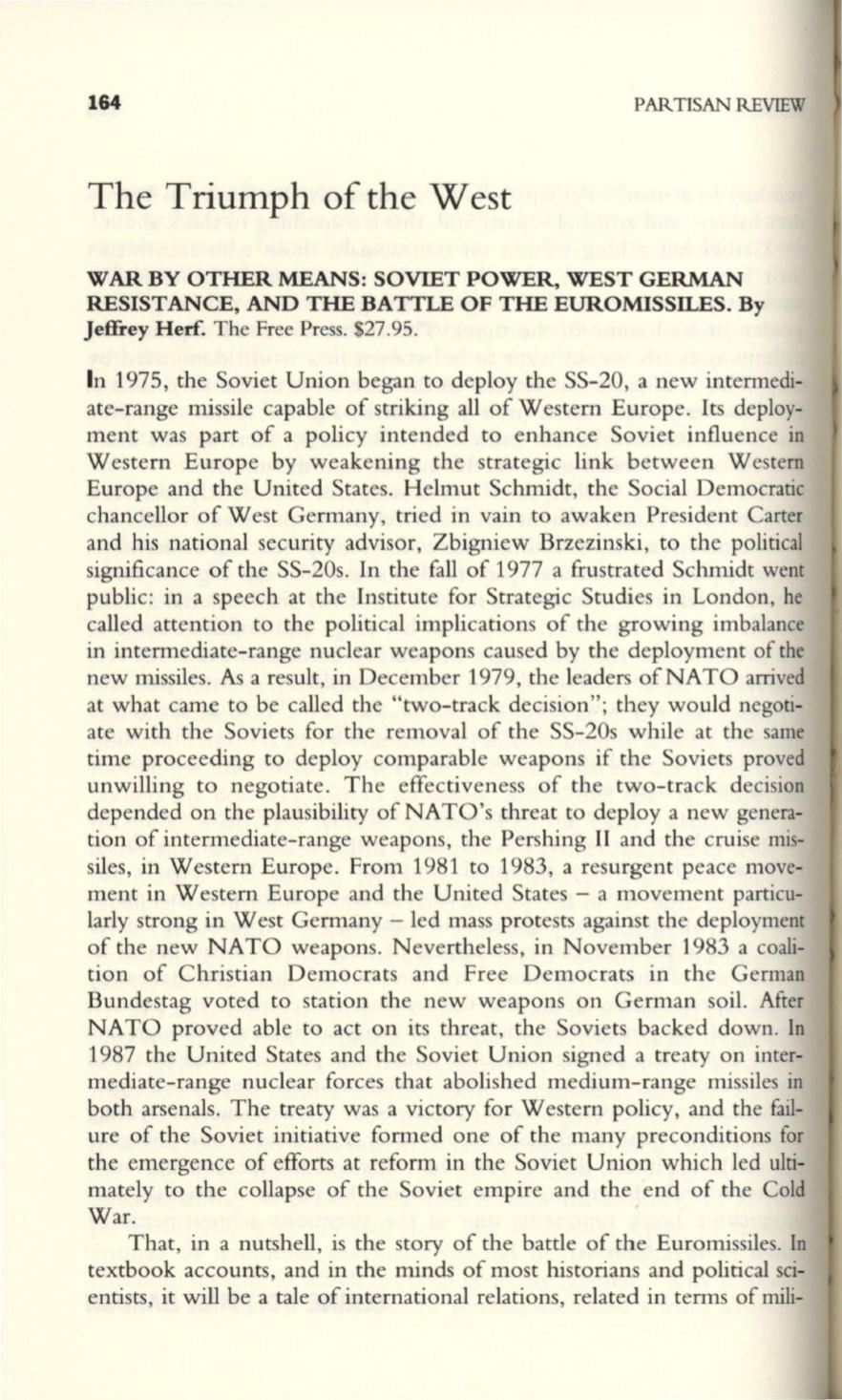
164
PARTISAN REVIEW
The Triumph of the West
WAR BY OTHER MEANS: SOVIET POWER, WEST GERMAN
RESISTANCE, AND THE BATTLE OF THE EUROMISSILES. By
Jeffrey Herf. The Free Press. $27.95.
In
1975,
the Soviet Union began to deploy the SS-20, a new intermedi–
ate-range missile capable of striking all of W estern Europe. Its deploy–
ment was part of a policy intended to enhance Soviet influence in
W estern Europe by weakening the strategic link between Western
Europe and the United States. Helmut Schmidt, the Social Democratic
chancellor of West Germany, tried in vain to awaken President Carter
and his national security advisor, Zbigniew Brzezinski, to the political
significance of the SS-20s. In the fall of
1977
a frustrated Schmidt went
public: in a speech at the Institute for Strategic Studies in London, he
called attention to the political implications of the growing imbalance
in intermediate-range nuclear weapons caused by the deployment of the
new missiles. As a result, in December
1979,
the leaders of NATO arrived
at what came to be called the "two-track decision"; they would negoti–
ate with the Soviets for the removal of the SS-20s while at the same
time proceeding to deploy comparable weapons if the Soviets proved
unwilling to negotiate. The effectiveness of the two-track decision
depended on the plausibility of NATO's threat to deploy a new genera–
tion of intermediate-range weapons, the Pershing
II
and the cruise mis–
siles, in Western Europe. From
1981
to
1983,
a resurgent peace move–
ment in W estern Europe and the United States - a movement particu–
larly strong in West Germany - led mass protests against the deployment
of the new NATO weapons. Nevertheless, in November
1983
a coali–
tion of Christian Democrats and Free Democrats in the German
Bundestag voted to station the new weapons on German soil. After
NATO proved able to act on its threat, the Soviets backed down. In
1987
the United States and the Soviet Union signed a treaty on inter–
mediate-range nuclear forces that abolished medium-range missiles in
both arsenals. The treaty was a victory for W estern policy, and the fail–
ure of the Soviet initiative formed one of the many preconditions for
the emergence of efforts at reform in the Soviet Union which led ulti–
mately to the collapse of the Soviet empire and the end of the Cold
War.
That, in a nutshell, is the story of the battle of the Euromissiles. In
textbook accounts, and in the minds of most historians and political sci–
entists, it will be a tale of international relations, related in terms of mili-


